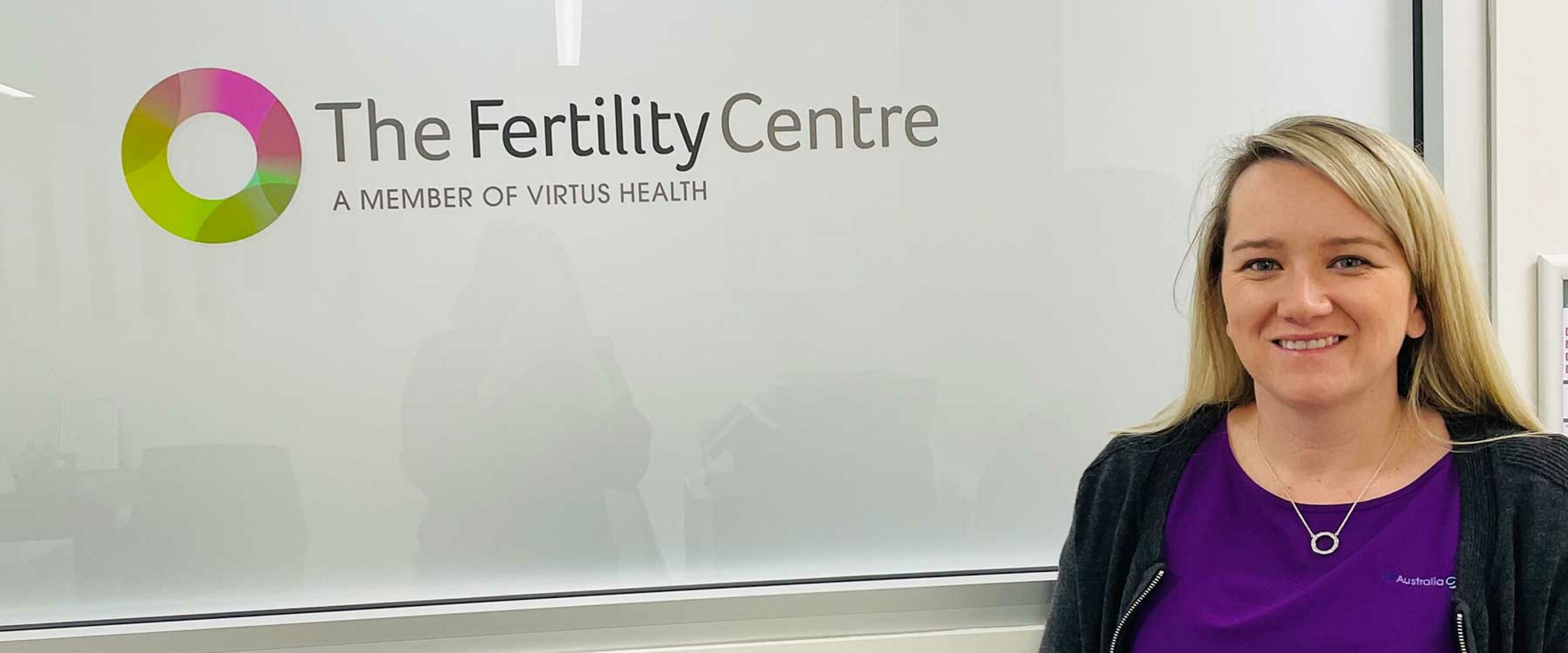
A Day in the Life of an IVF Nurse
What's it like to be an IVF nurse?
One of The Fertility Centre's dedicated Fertility Nurses, Amanda Smith, shares her insight.
This article was originally posted on Australian College of Nursing here
My experience as a fertility nurse is hugely rewarding. In the day-to-day role, strong relationships are forged with patients, as we are with them from the start of their fertility journey, supporting them with counselling-based, empathetic care.
From midwifery to fertility nurse
I started my nursing career as a midwife, where the focus is on a continuity of care model, providing care from 12 weeks of pregnancy, being on call for their birth and including follow up care and support for the first weeks after childbirth.
Four years ago, I became a Fertility Nurse, at IVFAustralia’s Westmead clinic. Similar to midwifery, fertility nurses also provide continuity of care, but the care is focused on the opposite end of the pregnancy journey.
As a fertility nurse, I provide support to women and couples from the very beginning. The first contact is when the patient phones the clinic, and they book their first consultation. We are there to follow them through their journey from blood tests, to scans, the egg collection procedure, embryo transfer and pregnancy scans.
In a midwifery setting, a continuity of care model creates better outcomes: lower epidural rates, lower C-section rates and overall better patient satisfaction. It is the same in fertility care; we can enhance the patient experience by providing emotional support; being there to answer their questions and allay their fears.
The nurse’s role in In Vitro Fertilisation (IVF)
For most patients, they have already experienced a huge emotional fertility journey before they have reached the IVF clinic. Our goal is to make sure they feel relaxed and comfortable before they start the IVF process, and we aim to make them feel at ease from the moment they walk through the door.
Starting with general friendly chat about how they are doing, how they are finding their injections etc. helps to make their experience a more personable one. It helps open the discussion to make the woman comfortable to chat about anything that may be troubling them about their cycle.
Sometimes women keep their treatment quite private from family and friends, so this allows them space to chat openly when they may otherwise have no one to talk to about this, aside from their partner. We can get to know the woman and their families well.
Patients often comment how they feel at ease and well supported by the time they get to egg collection, and how it’s reassuring for them to know who is going to be in the procedure room with them to hold their hand and offer words of encouragement.
Moving from midwifery to fertility nursing there was a big learning curve, mainly the in-depth study of the female reproductive system, understanding the study of hormones, ovulation and the menstrual cycle.
I learnt how to undertake transvaginal follicle tracking scans from an expert sonographer; and I’m grateful to the support and mentoring I received from my longstanding fertility nurse colleagues.
The day to day
It's important fertility treatment is accessible to all members of the community. This is why low-cost IVF clinics are so important, they offer a more affordable option for fertility treatment and boost accessibility of IVF for people who need it.
I recently started working at the first low-cost IVF clinic in the Penrith area: The Fertility Centre (TFC) in Nepean, part of the Virtus Health group. TFC clinics provide a unique fertility nurse-led model, where patients have most of their care looked after by a highly skilled team of fertility nurses.
The nurse assists with the initial patient consultation, helping patients learn how to administer important IVF injections, and they carry out monitoring ultrasounds, with the egg collection and embryo transfer procedures carried out by a specialist fertility doctor. The fertility nurses help educate patients and prepare them for when they are under the care of the fertility specialist, during an egg collection and embryo transfer.
I enjoy the collaborative care of working alongside an experienced team of scientists and embryologists, and it is so fulfilling helping families achieve their goal of having a baby. This can only be done by providing patients with empathetic support, particularly when communicating patient’s pregnancy results needs to be managed with optimal care, consideration and kindness.
The science of IVF
I also enjoy explaining to patients how their eggs, sperm and embryos are cared for in the IVF laboratory. The science and technology in the lab is extremely complex and it is my role to translate it into more accessible language to help patients understand the IVF process.
In an IVF cycle today, embryos are grown in a protected environment in an incubator for five days before being transferred into the woman’s uterus. The incubators have in-built cameras which photograph the growing embryo every ten minutes, this produces a time-lapse video which the embryologist can watch to see how the embryo is developing, checking for visual changes to know that the embryo is passing vital development milestones.
As IVF technology is constantly evolving, it makes my role as a fertility nurse exciting, and rewarding, to know that we are offering next generation technology to every IVF patient.
